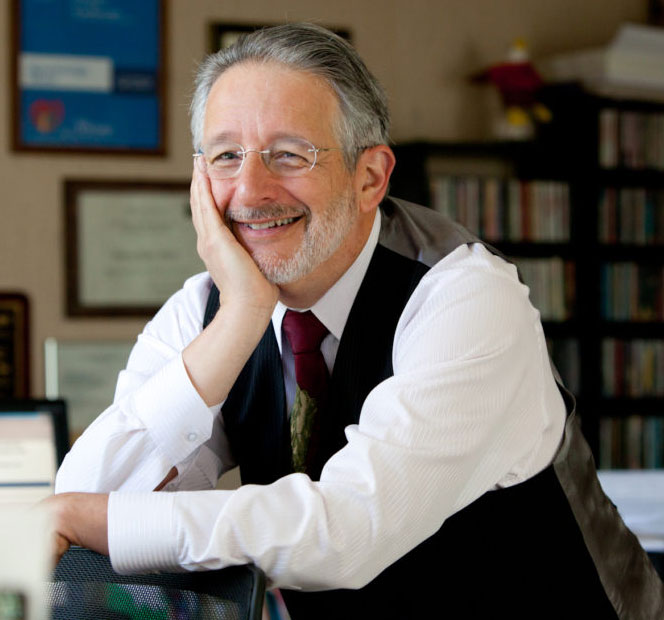In today’s rapidly changing world, the concept of intimacy is often misunderstood, leaving many people confused when seeking guidance on sexual matters. Those who turn to therapy for help may be surprised to discover that many therapists may lack the proper training to address these concerns effectively. As Dr. Marty Klein, a well-respected therapist and author, explains, issues related to human sexuality are frequently overlooked in the training of many therapists. This significant gap in knowledge can have severe consequences for individuals and couples seeking therapy to address intimate and sexual challenges.
Dr. Klein’s blog tackles a crucial issue: the ambivalence, fear, and misinformation that surround sex in Western culture, which often seep into therapeutic settings. With a widespread lack of formal education in human sexuality, it’s no surprise that many therapists struggle to adequately address their client’s concerns. Instead of providing helpful guidance, some therapists may in fact reinforce existing misconceptions, leaving individuals and couples feeling even more unsupported and confused.

The Disconnect Between Therapy and Sexuality Training
Dr. Klein is the author of several insightful books, including America’s War on Sex and Sexual Intelligence, which offers a unique perspective on how therapists are often ill-prepared to handle sexual issues. In his blog, Klein explains that many therapists inadvertently reflect societal negativity towards sex, further complicating the experience for their clients.
One crucial point Dr. Klein addresses is the way some therapists view sexual kink. Rather than recognizing kink as a popular and consensual expression of eroticism and pleasure, many therapists mistakenly automatically associate it with trauma or abuse. This misunderstanding stems from the societal tendency to pathologize non-normative sexual behaviors. “Interest in kink often reflects a healthy exploration of eroticism and pleasure,” Klein explains. Unfortunately, most therapists have little or no training in these topics, causing them to approach such discussions with skepticism, discomfort, or an assumption that something is inherently wrong.
This lack of understanding is deeply problematic, as it risks pathologizing healthy sexual expressions. Kink, like any other sexual preference, is a legitimate form of erotic exploration. When therapists fail to grasp this, they may focus on treating an imagined trauma rather than helping their clients better understand and embrace their desires.

The Misinterpretation of Sexual Preferences in Therapy
The problem extends far beyond kink. Dr. Klein emphasizes how the lack of training in sexuality affects therapists’ ability to handle other complex sexual matters, such as infidelity. Many therapists approach the topic of infidelity with a narrow and often harmful perspective. Dr. Klein raises concerns about the confession-driven approach that some therapists take, in which they insist that clients recount every detail of an affair in painstaking detail. This method, Dr. Klein argues, can do more harm than good, fostering obsession over irrelevant specifics rather than facilitating meaningful healing.
Dr. Klein states, “What betrayed partners need is comfort, communication, and understanding—not an endless replay of every moment that transpired.” By focusing on growth, emotional reconnection, and open communication, therapists can help couples move through infidelity more productively and compassionately. Klein’s perspective serves as a reminder that the goal of therapy should be emotional healing, not retraumatization through unnecessary fixation on every aspect of the affair.

Challenging Conventional Wisdom in Therapy
Dr. Klein does not hesitate to challenge long-standing but flawed ideas within the world of therapy. One of the most pressing issues he addresses is the overdiagnosis or misdiagnosis of emotional distress related to sexual issues. As Klein highlights, there is an alarming tendency among some therapists to misdiagnose conditions like PTSD when it comes to relationship or sexual challenges. While validating clients’ experiences is essential, not all emotional pain requires a formal diagnosis. Klein warns that overdiagnosing can lead to a disempowering victim narrative, which can be particularly damaging in cases related to sexuality.
In relationships, the language of “rights” is another contentious topic. For instance, Klein explores how some therapists endorse the idea that one partner has the “right” to a porn-free home. Without addressing the deeper dynamics of the relationship, this type of thinking can lead to unnecessary power struggles. The key to resolving these conflicts is communication and negotiation—not a rigid imposition of “rights.” By encouraging couples to discuss their feelings and preferences openly, therapists can help guide them toward a resolution that respects both partners’ needs.
This focus on open communication and negotiation is central to Dr. Klein’s approach to therapy. Whether addressing infidelity, sexual kink, or conflicts over pornography, his message is clear: relationships thrive when partners engage in honest, respectful dialogue. Rather than imposing rigid rules or diagnoses, therapists should foster an environment of curiosity, understanding, and open-mindedness.

Seeking a More Compassionate Dialogue
Dr. Marty Klein’s blog offers a crucial reminder that therapists, though often well-intentioned, may not always be equipped to handle the complexities of human sexuality. His work challenges both therapists and clients to rethink how sexual concerns are addressed in therapy and in everyday life. By fostering a more compassionate, informed, and open dialogue, we can move toward a world where sexuality is celebrated rather than pathologized.
For those navigating these challenges, it is essential to seek out professionals who are well-versed in human sexuality and open to diverse interpretations of intimacy. Whether you are exploring kink, healing from infidelity, or grappling with relationship conflicts, finding a therapist or coach who understands these nuances can make all the difference.
If you’re interested in exploring these topics further, I highly recommend reading Dr. Klein’s books, including Sexual Intelligence and America’s War on Sex. His writing offers valuable insights into the cultural and personal factors shaping our sexual experiences, providing readers with tools to better understand their own desires and relationships.

Image of Dr. Marty Klein, www.martyklein.com
A Little More About Dr. Marty Klein…
Dr. Marty Klein is an internationally recognized sex therapist, author, and public speaker. With over 40 years of experience, he has worked with thousands of couples and individuals, helping them better understand their sexual desires and challenges. Dr. Klein is the author of several books, including Sexual Intelligence and America’s War on Sex, both of which offer critical insights into the role of sexuality in modern culture. His work encourages people to challenge societal norms and embrace their unique sexual identities.
Dr. Namita’s Take: Building Intimacy Through Awareness
As a Sex Intimacy & Relationship coach, I find Dr. Klein’s insights not only valuable but highly relevant to my own work. His approach highlights the importance of addressing sexual concerns with nuance, understanding, and a willingness to challenge societal norms. Sexuality, as we know, is deeply individual, and every person’s experience deserves careful and thoughtful consideration.
Dr. Klein’s emphasis on open communication and emotional growth aligns closely with my approach to intimacy coaching. In my practice, I encourage individuals and couples to explore the complexities of their desires and relationships with an open mind. True intimacy begins with self-awareness—understanding what we desire and how those desires fit into our broader emotional and relational lives.
One of the key pillars of my coaching practice is fostering a safe space where clients can discuss their intimate and sexual concerns without fear of judgment. I believe that therapy and coaching should empower individuals to embrace their sexuality, no matter how unconventional it may seem. This requires not only a willingness to explore one’s desires but also a commitment to challenging societal taboos that often stifle meaningful discussions around sex.
In addition to self-awareness, successful intimacy hinges on trust and mutual understanding. Partners need to feel comfortable expressing their desires, boundaries, and concerns without fear of rejection or judgment. This can be particularly challenging when sexual preferences, like kink or open relationships, deviate from societal norms. However, as Dr. Klein emphasizes, these preferences are valid expressions of intimacy and deserve the same level of respect and consideration as more conventional forms of sexual expression.
For those who have felt misunderstood in therapy or struggled to communicate their sexual needs, it’s important to remember that true intimacy is built on a foundation of trust, understanding, and exploration. Therapists, coaches, and individuals alike must be willing to engage in open, honest conversations about sexuality—conversations that challenge conventional norms and embrace the full spectrum of human desire.
Are you seeking guidance or support on your intimacy journey? Please reach out to me for help realizing your goals for love, sex, and intimacy.

